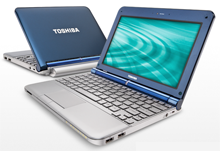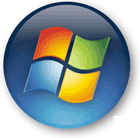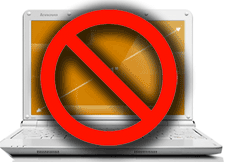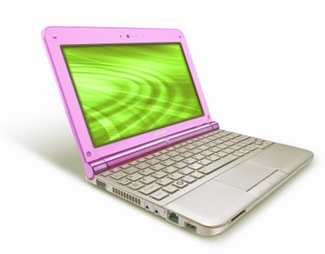 When Toshiba announced its first netbooks last month, it said that it had waited to start selling inexpensive little notebooks in the U.S. until it felt like it could do them justice. I’ve just spent time using the Mini NB205–which Toshiba likes to call a mini-notebook rather than a netbook–and found that it’s indeed one of the most highly-evolved netbooks to appear to date. There’s nothing spectacularly new or different about its design or specs, but it’s a pleasing machine that doesn’t feel compromised 0r chintzy, and there are multiple areas in which Toshiba erred on the side of doing things right rather than doing them cheap.
When Toshiba announced its first netbooks last month, it said that it had waited to start selling inexpensive little notebooks in the U.S. until it felt like it could do them justice. I’ve just spent time using the Mini NB205–which Toshiba likes to call a mini-notebook rather than a netbook–and found that it’s indeed one of the most highly-evolved netbooks to appear to date. There’s nothing spectacularly new or different about its design or specs, but it’s a pleasing machine that doesn’t feel compromised 0r chintzy, and there are multiple areas in which Toshiba erred on the side of doing things right rather than doing them cheap.
The Mini NB205-N312BL I reviewed lists for $399.99 and sports the components and features you’d expect to find in a current $400 netbook: a 10.1-inch screen with 1024-by-600 resolution and LED backlighting, a 166-MHz Intel Atom N280 CPU, 1GB of RAM, a 5400rpm 160GB hard drive, 802.11G Wi-Fi, Ethernet, Bluetooth, three USB ports, an SD slot, VGA output, a Webcam, and a six-cell battery. And oh yeah, it runs Windows XP Home SP3.
The $399.99 version of the Mini is available in blue, brown, pink and white; all versions have two-tone cases and a bit of texture to the plastic on the lid. They’re among the slickest-looking netbooks at their price point. (There’s also a $349.99 version with a black case, a more basic keyboard, and no Bluetooth; I’d spring for the extra $50 for the top-of-the-line version.)

 Microsoft has announced its fourth quarter financial results, and for those of us who are Microsoft customers rather than shareholders, the most striking factoid may be this: The company’s revenue from Windows
Microsoft has announced its fourth quarter financial results, and for those of us who are Microsoft customers rather than shareholders, the most striking factoid may be this: The company’s revenue from Windows 
 The last major PC manufacturer who didn’t sell a netbook in the U.S. is jumping into the pool: Sony has announced that its VAIO W will arrive in August. The specs are standard stuff: a 1.6-GHz Atom processor, 1GB of RAM, a 10.1-inch screen, a 160GB hard drive, Bluetooth, Draft-N Wi-FI, Ethernet, two USB ports, a Webcam, and slots for SD and Memory Sticks. It runs Windows XP. And while the price is a tad on the high side at around $500, the screen resolution is, too: It’s a relatively roomy 1366 by 768. Oh, and the W is available in three colors: berry pink, sugar white, and cocoa brown.
The last major PC manufacturer who didn’t sell a netbook in the U.S. is jumping into the pool: Sony has announced that its VAIO W will arrive in August. The specs are standard stuff: a 1.6-GHz Atom processor, 1GB of RAM, a 10.1-inch screen, a 160GB hard drive, Bluetooth, Draft-N Wi-FI, Ethernet, two USB ports, a Webcam, and slots for SD and Memory Sticks. It runs Windows XP. And while the price is a tad on the high side at around $500, the screen resolution is, too: It’s a relatively roomy 1366 by 768. Oh, and the W is available in three colors: berry pink, sugar white, and cocoa brown. According to DigiTimes–a Taiwanese publication that’s always interesting, if not always completely reliable–Samsung is
According to DigiTimes–a Taiwanese publication that’s always interesting, if not always completely reliable–Samsung is  People are buying scads of the pint-sized laptops known as netbooks these days, but there’s
People are buying scads of the pint-sized laptops known as netbooks these days, but there’s  The PC industry may continue to be
The PC industry may continue to be  Research firm NPD has
Research firm NPD has